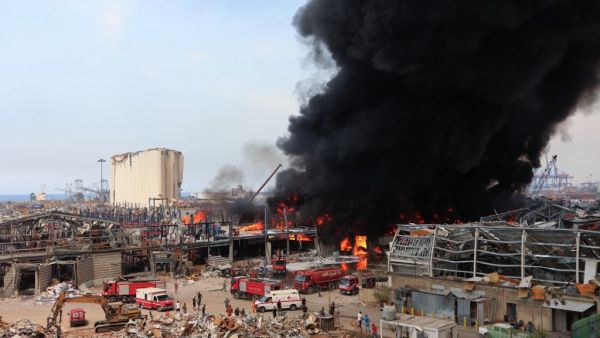A civil war is raging among Lebanese not on the streets of Beirut, but on social media outlets, leaving doubts whether Lebanon is anytime closer to become a stable and cohesive country.
Lebanese political parties, formerly militias, are feuding a digital civil war by asking their followers and sympathizers to post insults and accusations filled with bigotry and hate messages against their rivals. Videos, infographics and trolls have replaced political graffiti and street signs that once painted walls and squares during the Civil War.
Main political parties are providing training on how to wage disinformation campaigns, and for that they are seeking the help of digital marketing firms to train their electronic militia on digital warfare and political assassinations. Ironically, groups are hiring professional journalists to create fake news and write defaming texts.
All the themes of the ugly Civil War are re-emerging in the form of tweets, doctored videos and racist jokes and are swamping the social media networks and WhatsApp groups.
Hitting a military target is the equivalent of a post or a video going viral.
The grim reality is that the younger generation are the ones using social media the most and are exposed to these toxic messages if not participating in spreading the party line and engaging rivals.
Monitoring engagements and assessing sentiments of users, lead to believe that the country is a powder keg awaiting a foreign power willing to exploit and underwrite a military conflict.
Instead of purchasing Russian AK-47 and ammunition, political parties are arming their cyber militants with fake accounts that can’t be detected and traced back by law enforcement agencies or lawyers looking to air perpetrators.
This is how it works:
The digital and communication units within each group get temporary phone numbers and use it to create fake accounts and purchase bots, mainly from Russian firms, which provide them with an application to control the bots and disseminate the message.
It costs between $0.4 and $1 to buy a fake accounts from mainly Russian firms.
It takes 500 accounts in order to guarantee a trend among the top 20 in a given time. And the provided application to control the bots can guarantee several trends and maintain the top ranking. It is a territorial warfare where groups are trying to assert their presence in the digital world.
The problems with certain misleading messages, they become true because people tend to believe rumors and fake information , and it would require a major public relations campaign to reverse or at least neutralize the wrong information.
Political leaders craft their speeches in sound-bites and catchy hashtags then their followers and electronic armies begin tweeting and posting on social media to make it a top trend.
Social media companies are not regulating enough the monsters they have created, either because they don’t want to affect their revenues or because the local market in not a top priority. Despite attempts to keep bad guys away and canceling bots, the reality is that electronic armies and digital marketing firms continue to manipulate information and mislead innocent users and subsequently the public opinion at large.
While conventional media and mainstream news organizations are struggling to survive financially, It is safe to say more money is being spent to disinform than to generate accurate news and inform.
Judging from the tone of posts and tweets and engagements, the Lebanese national identity is still work in progress, and faraway from marching toward a civil secular nation.
Lebanese tend to show unity in the aftermath of disaster but in time of peace old divisions and grudges resurface.
Mouafac Harb is a veteran American-Lebanese journalist based in Beirut.
This article has been adapted from its original source.








